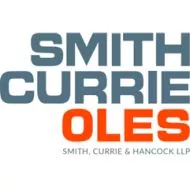The Armed Services Board of Contract Appeals ("ASBCA") recently swatted down an attempt by the U.S. Army Corps of Engineers ("USACE") to use the sovereign acts doctrine to dodge liability for extra costs incurred during a COVID-19 shutdown. In StructSure Projects, Inc., ASBCA No. 62927 (Aug. 8, 2023), the ASBCA ruled that where the contractor provided swing space that the government used during a COVID-19 facility closure, even though the contractor was not allowed on site, the government is liable for the contractor's costs for providing the swing space.
USACE awarded a fixed price task order to StructSure Projects to design and alter medical facilities on Travis Air Force Base. Among the CLINS was a requirement that StructSure provide swing space for the government to use while the alterations were made to the permanent facilities.
When COVID-19 struck, the government deemed StructSure's work to be non-essential, and instructed StructSure that it would not be permitted on the base until further notice. The temporary swing space remained on site and the government used the space during the period that StructSure's work was suspended. After 44 days, the government allowed StructSure to restart its on-site work. The parties executed a bilateral modification extending the contract completion date approximately three months to account for the COVID-19 shutdown and related supply chain issues, remobilization time, and enhanced safety protocols. As a result of the extension, StructSure had to rent the swing space units for three months past the original completion date.
StructSure submitted a request for equitable adjustment, and later a certified claim, seeking reimbursement for the three additional months of swing space costs. USACE denied the claim, asserting that because the base closure was a sovereign act, StructSure was entitled to time, but not money.
On Appeal, the ASBCA rejected USACE's argument that because this was a fixed price contract, StructSure bore all cost risks, including for a pandemic. The ASBCA held that the three-month extension of the swing-space CLIN constituted a compensable change.
The government again argued that because suspending StructSure's performance was a sovereign act, StructSure was only entitled to time. USACE asserted that because StructSure was not permitted entry to the base as the result of a sovereign act, performance had been rendered impossible, which would trigger the sovereign acts defense. But during the 44 days that StructSure was barred from the facility, it continued to provide the swing space, which was under its own CLIN in the task order. The ASBCA concluded that while a sovereign act had frustrated StructSure's ability to perform on-site work, its provision of swing space (and the government's use of the space) was uninterrupted. As a result, USACE could not rely on the sovereign acts defense. The ASBCA held that StructSure is entitled to compensation and remanded the matter to the parties to negotiate quantum.
The government has relied heavily on the sovereign acts doctrine to fend off COVID-19-related claims. This case is a reminder that while the defense is a strong one, it does not apply in every instance.
The content of this article is intended to provide a general guide to the subject matter. Specialist advice should be sought about your specific circumstances.

